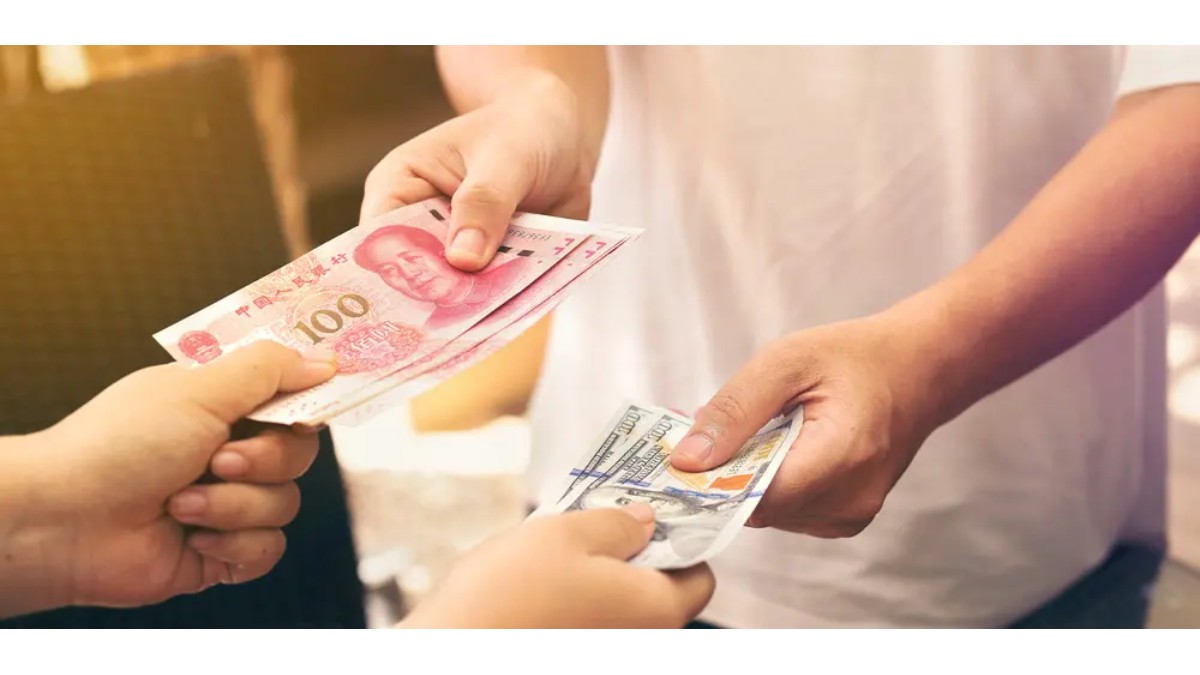Business
Top 5 Ways to Exchange Foreign Currency

Globally, cashless transactions are growing more typical as consumers use mobile payment apps, debit and credit cards, and other digital payment methods for daily purchases. Even so, you may want to convert some US dollars into foreign currency before leaving the country—either because you like to travel with some cash on you or because it’s still the preferred method of payment at your destination.
While there are several methods for exchanging currency, the goal is to obtain the best exchange rate possible with the fewest costs—a task that is more easily said than done. Here are some tips for finding the best deals and exchanging currencies to help get you started in the right direction.
Five methods for exchanging foreign currency
- Before and after your trip, obtain cash from your bank or credit union
In addition to the exchange rate, many banks and credit unions offer foreign exchange services without assessing a fee. You can place a currency order over the phone, online, or in person at your local branch, and you can choose to have it delivered or picked up.
While some currencies might take a few days to process, others will be “in stock” and ready for exchange right away. You can exchange any spare cash for dollars when you get back from your trip, or you can store it for your next adventure.
- Take out cash from in-network ATMs operated by your bank
The best place to get cash to spend locally is from an Automatic Teller Machine (ATM) once you arrive at your destination. ATMs typically provide competitive exchange rates, and by using ATMs within your bank’s network, you can minimize or even completely avoid fees. If you take out larger sums of money once or twice instead of smaller ones more often, you can save money on fees. Find out your daily and per-transaction ATM limits from your bank, and ask for an increase if you anticipate using more cash.
- Make use of a money transfer app
You can send money to friends, family, and merchants all over the world with money transfer apps. Most transfers are finished in a matter of minutes. The applications are free to use, but if you fund the transfer using a credit card rather than a linked bank account, you will usually be charged a fee. If the cash has to be converted into another currency, there might be a fee.
- Currency converters available online
Using an online currency converter to order cash is an additional choice. You might, however, receive a bad exchange rate. Also, depending on how much currency you exchange, the pick-up and delivery fees may exceed what your local bank charges.
- Airport kiosks and currency exchange counters
Easy places to change money include tourist attractions, lodging facilities, and airport kiosks. But you’ll have less money in your pocket because of the exorbitant fees and bad exchange rates. You can exchange currency at your local bank or credit union for less currency if you can arrange it ahead of time.
Additional information on foreign currency
What is the process for exchanging currencies?
You can exchange one currency for another, for example, US dollars (USD) for euros, using currency exchange. Due to the constant fluctuations in currency values, the exchange rate you get is contingent upon the state of the world markets at any given time. Rarely is the ratio 1:1. Alternatively, one US dollar could purchase 151.83 Japanese yen, 16.32 Mexican pesos, or 0.93 euros.
Banks that exchange foreign currency for free
Many banks offer free currency conversions between USD and other currencies, but you might need to be a customer or have a premium bank account plan. You are still responsible for paying for the exchange, so keep in mind that the exchange rate you receive might include the bank’s profit as well as any fees, costs, charges, or other markups in the spread. Check with your bank for more information.
Where in the world can I find foreign currency?
If you need foreign currency while traveling abroad, ATMs are usually your best option. ATMs typically provide competitive exchange rates, and you can avoid fees if you use ATMs within your bank’s network. Keep in mind that there could be an additional fee of several dollars or more from the ATM (or its affiliated bank). There are instances when ATM fees in tourist areas of town are higher than in non-tourist areas.
Places to avoid when exchanging currency
Airport kiosks, hotels, and tourist centers are some of the worst places to exchange currency; you’ll get less for your money due to high service fees and poor exchange rates, but you won’t have to go out of your way to trade in your dollars there. (Of course, it’s best to stay away from currency exchange businesses in isolated or dubious areas due to security concerns as well as exorbitant fees and unfavorable exchange rates.)
You can still try haggling for a better deal or less expensive fees, but you’ll need to be aware of the exchange rate at the time of the transaction. To see real-time exchange rates, simply perform a quick Google search. As of May 5, 2024, for instance, a “USD to EUR” search reveals that $1 buys 0.93 euros. To view real-time exchange rates, you can also use an online currency converter such as Xe or Oanda.
Alternatives to exchanging currency
Debit and credit cards are easy substitutes for exchanging currency. The travel rewards and protection features that many credit cards—and some high-end debit cards—offer make them an even more alluring choice. However, there are a few things to consider when using your card abroad:
- Not all places accept credit or debit cards.
- Even though they accept others, some retailers don’t take certain credit card networks. The two most widely accepted cards worldwide are Visa and Mastercard, out of the four major U.S. payment networks (Visa, Mastercard, Discover, and American Express).
- A foreign transaction fee levied by several card issuers can add approximately 3% to your overall expenses, or $30 on a $1,000 hotel bill, for instance. Consider obtaining a travel credit card with no foreign transaction fees if you take trips frequently.
- If your card issuer notices any overseas card activity, they may contact you or temporarily freeze your card. Set up a travel notification to save hassle.
- The choice to pay in local currency or USD (referred to as dynamic currency conversion) may be provided by merchants. Although selecting the local currency will almost always result in a better rate, paying in USD may seem like the better option. (even if the merchant tells you otherwise).
- Credit card cash advances are a costly method of obtaining cash and ought to be used as a last choice.
- A banking app can notify you of any unauthorized transactions and help you keep an eye on the activity on your accounts in real-time.
Know your options before you travel
Check to see whether the places you’ll be visiting accept credit cards before booking any international travel. If so, you might not require any foreign cash (unless you find it uncomfortable to travel without cash). For larger purchases like hotels and guided tours, think about charging, and using an in-network ATM to get cash for regular expenses like coffee, street vendors, and tips.
-

 Business3 weeks ago
Business3 weeks agoNayef Doleh Examines International Humanitarian Fundraising Strategies
-

 Business3 weeks ago
Business3 weeks agoHow to fill MSME Form 1? Step-by-Step Guide
-

 Business4 weeks ago
Business4 weeks agoHow Black Banx is Redefining Global Banking Strategies in 2025
-

 Festivals & Events4 weeks ago
Festivals & Events4 weeks agoInteresting Facts about St. Patrick’s Day
-
Business3 weeks ago
From Marine to Chief: The Leadership Journey of Sean Mannix
-

 Food4 weeks ago
Food4 weeks agoGeorgiy Balyuk Highlights Savannah’s Charm and Houston’s Best Eats
-

 Gadget3 weeks ago
Gadget3 weeks agoAfter Grand Success on BLDC Ceiling Fan, Eff4 Is Launching Smart Bulb
-

 Festivals & Events3 weeks ago
Festivals & Events3 weeks agoGoogle Celebrates Cherry Blossom Season with Animated Doodle

























